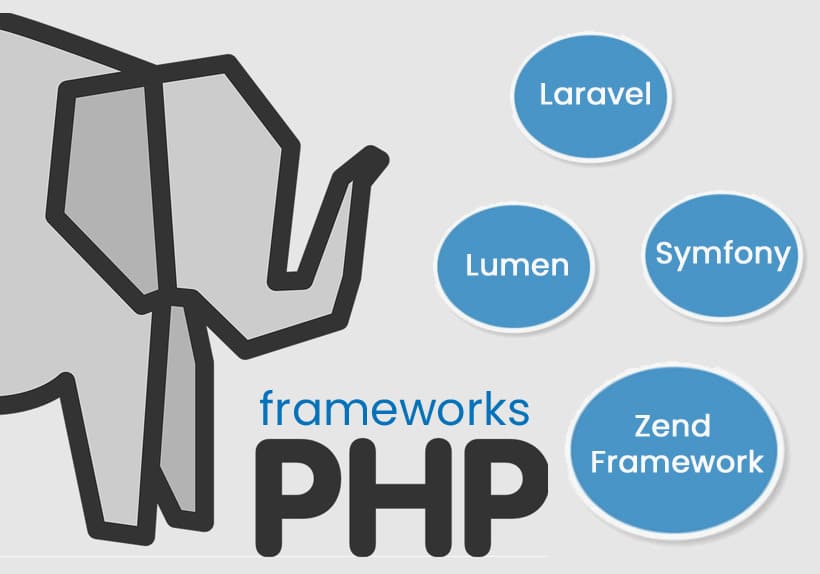List of popular and best PHP frameworks

The PHP programming language allows you to develop websites and web applications of different complexity. To make the development faster and better, there are special frameworks that provide many ready-made features. Using the framework, the developer no longer needs to think about authorization, security, data storage and much more. All this is already in the frameworks and the developer can focus directly on the project and related tasks. In recent years, programming communities have created many excellent PHP frameworks with which you can easily develop projects of various types and complexity.
-
Laravel
Laravel is the most popular PHP framework due to its excellent architecture. The framework is a development environment for both small and large-scale web applications. A lot of web developers prefer this particular framework.
Main features of Laravel:
- Excellent documentation
- A powerful ecosystem built by developers: many forums, courses, instructions, sponsors.
- Flexible routing system
- Syntactic sugar and many auxiliary helpers
- Convenient logging system
- Built-in authentication, authorization, registration
- Flexible caching system
- Drivers for sending email notifications
- A bunch of ready-made packages on Github
- Migrations and ORM
- Built-in blade template engine
This is not all the advantages of the Laravel framework. Definitely, this is the leader among all other frameworks.
-
Lumen
Lumen is a micro-framework created on the basis of Laravel. It usually happens that when a framework becomes popular, then other, more lightweight frameworks appear on its basis. For example, Kohana was created based on the Codeigniter framework. The same thing happened with Lumen. In many ways, it inherited the functionality from Laravel, but only the most basic parts of it. The rest were removed because it is a micro-framework, which means it should be lightweight.
The main features of Lumen:
- Simplified routing
- Good performance compared to Laravel
- Best suited for creating microservices
- There are many ready-made packages for installation
You can learn more about the pros and cons by reading the review of the Laravel PHP framework.
-
Symfony
Symfony is a powerful framework based on unrelated components that you can independently connect and reuse in other projects. It was from Symfony that the Laravel framework was developed, which was described above. Symfony served as the basis for CMS — Magento, Drupal, Opencart. However, it is much more difficult to learn and use than Laravel and is suitable only for programmers with more experience.
The main features of the Symfony framework:
- Allows you to install a bunch of third-party packages, libraries, components
- It has close integration with the Doctrine library
- Built-in Swift Mailer library for sending mail
- Flexible error logging system, including Monolog
- Excellent documentation with examples
- Suitable for complex and loaded web projects
To learn more about the pros and cons, you can read the review of the Symfony PHP framework.
-
Zend Framework
Zend Framework is an object—oriented PHP framework for developing web applications, usually used in large commercial projects.
The main features of the Zend Framework:
- Great for commercial development
- Object-oriented approach
- Follows the MVC design pattern
- Components can be reused in other projects
- Provides good security, encryption of passwords and data
You can learn more about the pros and cons by reading the review of the Zend PHP framework.
Conclusion
The choice of a framework always depends on the project you are going to develop.
At the moment, Laravel is the most popular and used PHP framework. It can be used to develop small and large web applications.
Lumen is suitable for developing microservices and small components that can be used as part of other, larger information systems.
Symfony and Zend Framework are best suited for large commercial projects where the development period is long and the requirements for security and code quality are high.


